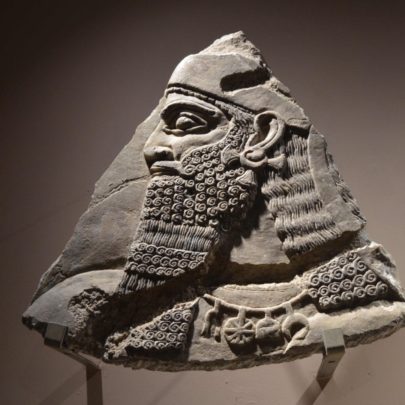
Richard FitzWilliam, seventh Viscount FitzWilliam of Merrion, in 1816 bequeathed his works of art and library, together with funds to house them, to the University of Cambridge to further “the increase of learning and other great objects of that noble foundation”. FitzWilliam’s bequest included 144 pictures, including Dutch paintings he inherited through his maternal grandfather and masterpieces by Titian, Veronese and Palma Vecchio that he acquired at the Orléans sales in London.
More than 500 folio albums were collected during his lifetime, with engravings, to form what has been described as “a vast assembly of prints by the most celebrated engravers, with a series of Rembrandt’s etchings unsurpassed in England at that time”. In addition his library included 130 medieval manuscripts and a collection of autographed music by Handel, Purcell and other composers, guaranteeing the Museum a place of prominence among the music libraries of the world.
The Founder’s Building, designed by George Basevi (1794-1845) and completed after Basevi’s accidental death by CR Cockerell (1788-1863), opened to the public in 1848. It’s an impressive neo-classical façade that I’m sure even Palladio would have been proud to put his name to. You step inside after walking through the Corinthian style pillars and it’s even more eye-catching. Above the grand staircase is Greek style statuary set in niches adorned by marble pillars and set beneath an ornate dome. One of the finest entries to a building I’ve ever seen.
Within lies an assorted array of archaeology and art to sate even the most discerning critic. How they choose what to display of the over half a million items must be a saga in itself. The attendants are helpful, the display areas spacious, the variety unsurpassed.
The first display I notice from thousands of years ago is from the famous ancient city of Nimrud. The bas relief is from the time of Ashurnasirpal; it heightens your expectations and you won’t be disappointed.

Cezanne, Pissaro, Monet, Titian, a bevy of Dutch masters and Renaissance pieces and a host of others whose names are bywords in the art world are on display, right here, right in front of me, and the viewing is free. It’s heaven in a museum.
There’s fine jewellery in worked gold, silver and precious stones, Etruscan decorative bronze pieces, Greek pottery, a decree carved in stone from Troy, Roman and Egyptian coffins, suits of armour from mediaeval times, the list seems endless.
Almost as fascinating is how some pieces are acquired. For instance, a joint campaign by the Fitzwilliam Museum and the Art Fund raised £3.9 million (AU$7.16 million) to enable the museum to acquire Nicolas Poussin’s masterpiece Extreme Unction (circa 1638-40). A substantial grant of £3.021 million (AU$5.54 million) from the Heritage Lottery Fund for the acquisition and outreach work, and almost £1 million (AU$1.84 million) in donations from members of the public, Friends of the FitzWilliam and charitable organisations ensured that this remarkable painting was saved for the nation.
The Art Fund also raised funds through contributions from nearly 3,000 members, contributing over £140,000 AU$256,903) to the appeal. The Fitzwilliam Museum was able to take advantage of the extraordinary opportunity provided by HM Government’s Acceptance in Lieu scheme to acquire the painting for £3.9 million instead of its market value of £14 million (AU$25.69 million).
I couldn’t get enough of the place but. Should the fates ever bring me back to England, there is one place I will be spending some serious time at and there are no prizes for guessing what that may be.